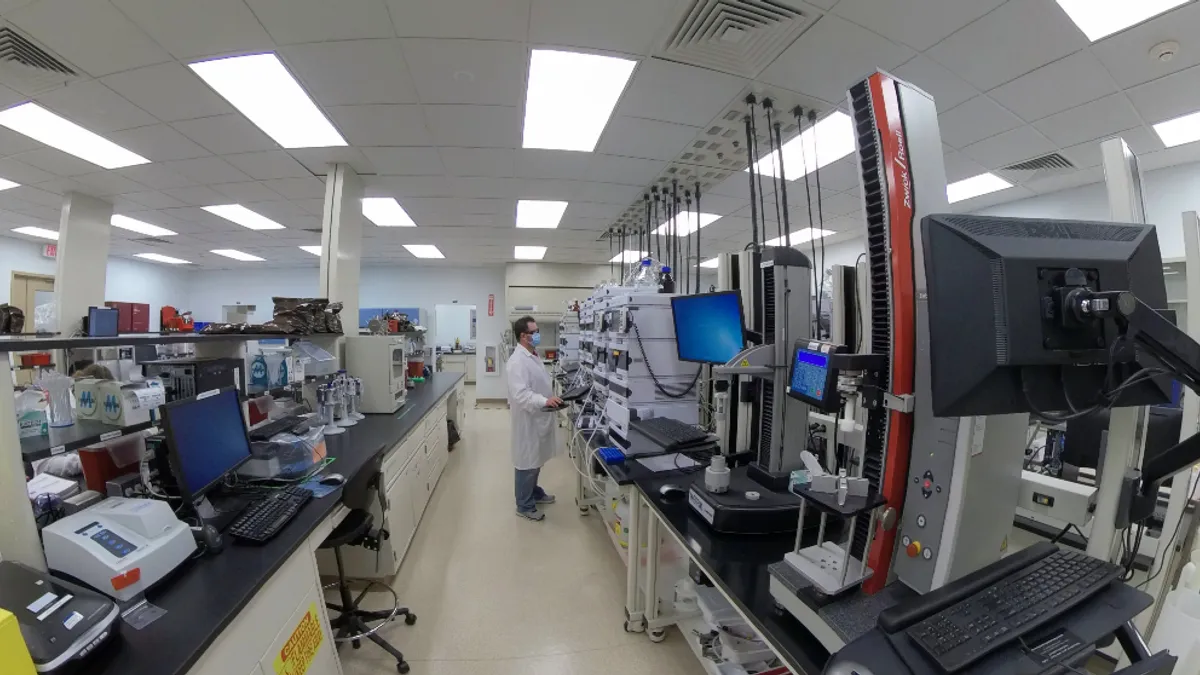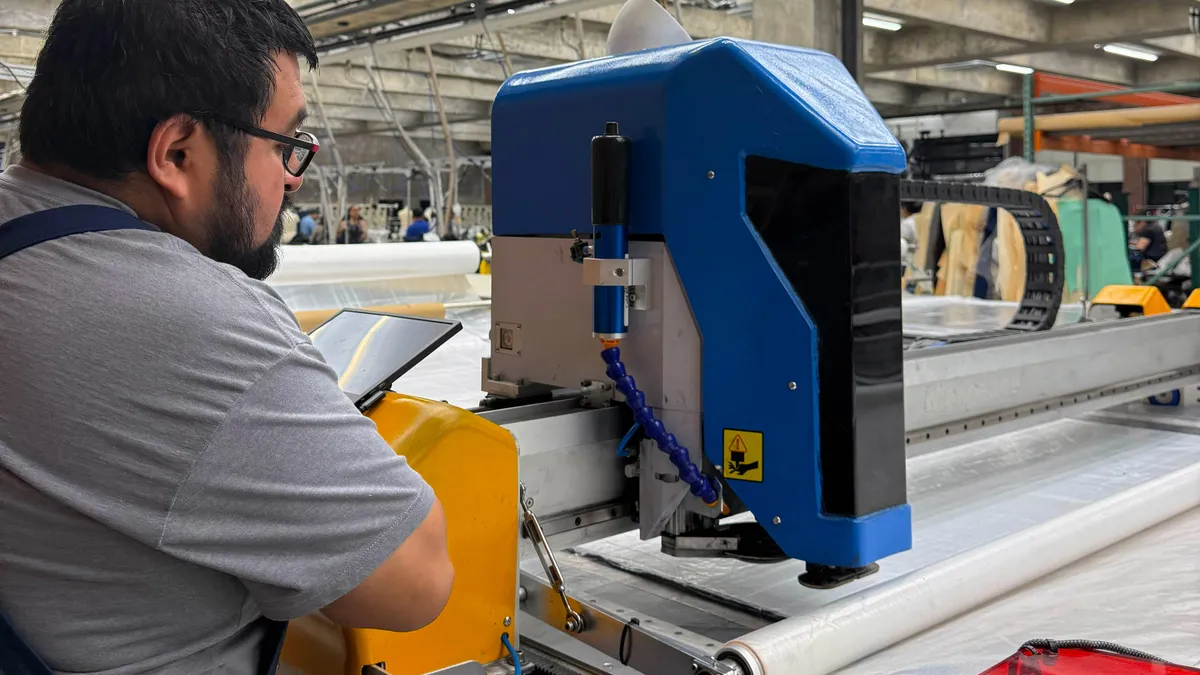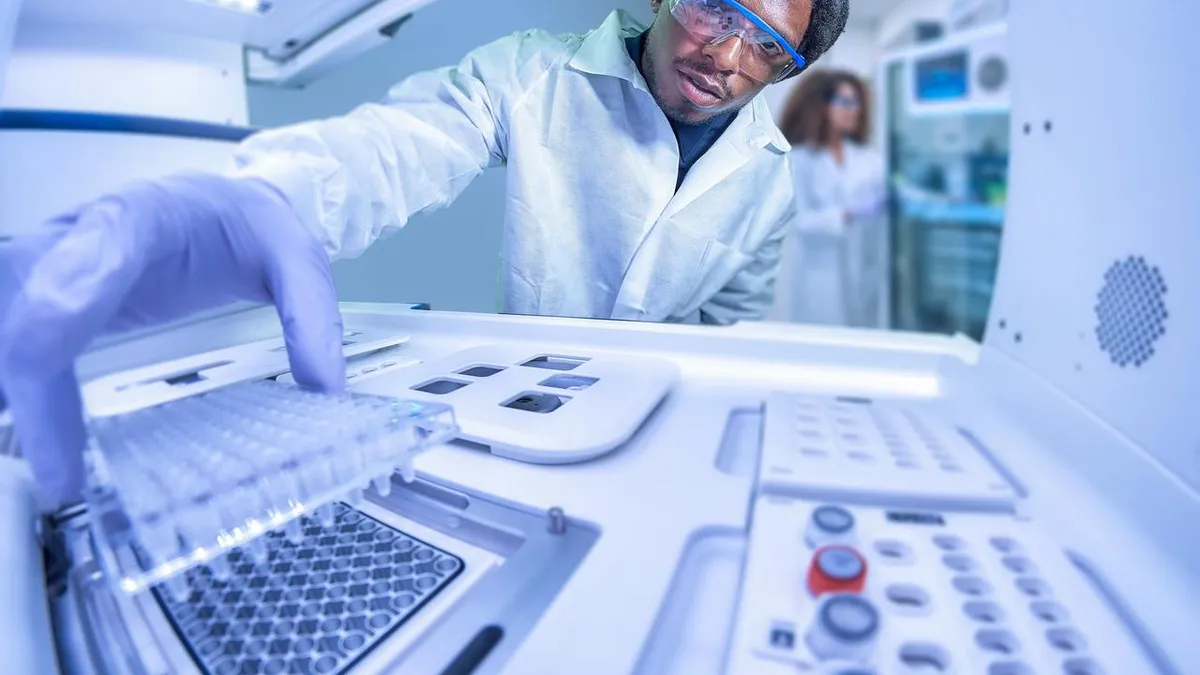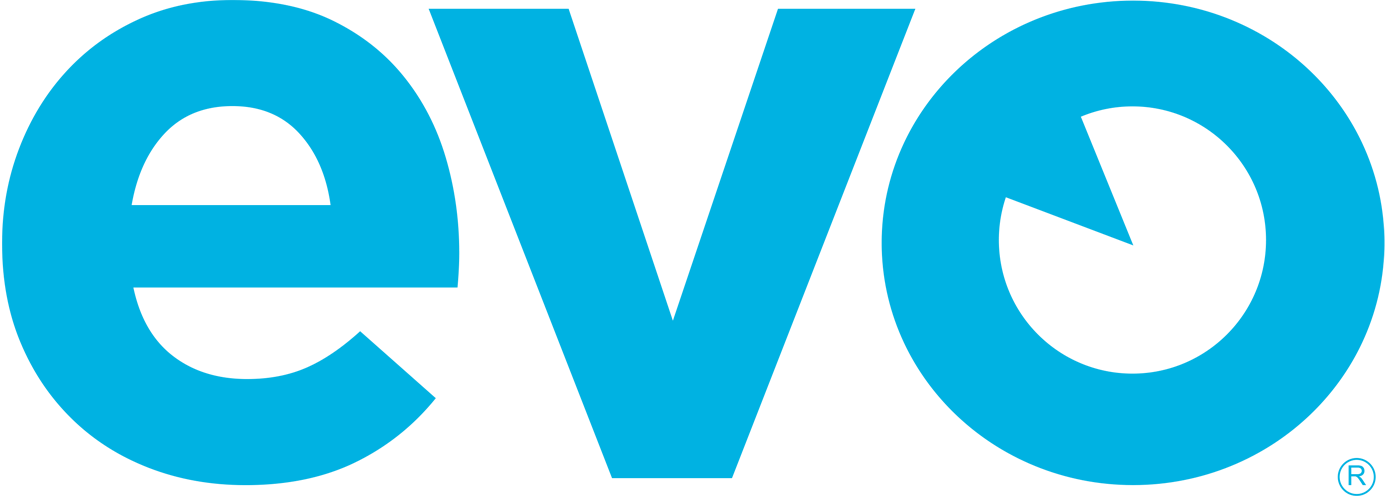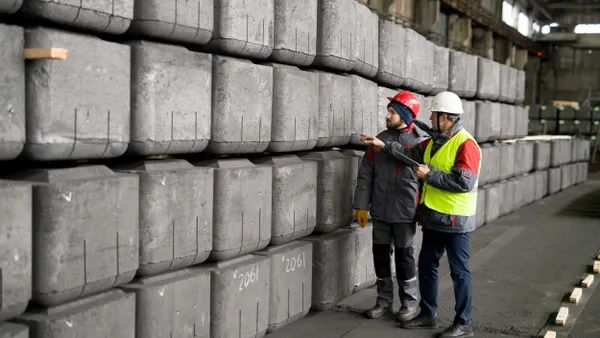Dive Brief:
- Contract drug manufacturer Catalent is investing more in both its gene therapy services and GLP-1 weight-loss drugs, including Wegovy, as it sees demand rise for the products, according to its Q3 earnings call.
- Catalent will increase production at its Bloomington, Indiana, and Anagni, Italy, facilities as the GLP-1 drug category is expected to contribute over $500 million in revenue once it reaches full operational capacity, up five-fold from its forecast for fiscal year 2024.
- Increased demand for gene therapy, especially from one of Catalent’s biggest clients, Sarepta Therapeutics, is also expanding the company’s CDMO business. The company is expanding its contract manufacturing for gene-therapy developers as it expects revenue to grow approximately 65% this fiscal year.
Dive Insight:
With rising demand for the two drug categories, the New Jersey-based pharmaceutical manufacturer confirmed it’s on track to achieve net revenues of $4.3 billion to $4.5 billion for FY2024.
“Key factors underpinning our confidence include continued high demand for our gene therapy services, expanded exposure to GLP-1 demand as we bring up more lines, and a very strong rate of new approvals that we've seen in the pharma and consumer health segment in this calendar year,” Catalent President and CEO Alessandro Maselli said in the call.
Catalent plans to accelerate its investments in the diabetes and weight loss drug category at its existing sterile fill and finish facilities in Indiana and Italy. The company’s Bloomington facility produces Danish drugmaker Novo Nordisk's Wegovy by filling self-injection pens for the weight-loss drug, Reuters reported in August.
“We are now forecasting that a larger majority of our current and future pre-filled syringe capacity coming online in fiscal '24 through fiscal '26 is expected to be booked soon, in support of this exciting category of products, confirming our position as a leading CDMO in this space globally,” Maselli said.
Catalent is also growing its contract manufacturing for Sarepta Therapeutics. Catalent manufactures Elevidys for Sarepta, which won FDA approval in June as the first gene therapy to treat Duchenne Muscular Dystrophy.
Although the gene therapy failed to reach statistical significance during a clinical trial in October, Catalent is still optimistic about the therapy's potential for growth.
“Sarepta has recently confirmed their scale-up plans for calendar 2024, firming up orders and we expect revenue from these top customers to grow approximately 65% this fiscal year as we manufacture product for the US market and the rest of the world to Sarepta and its partners,” Maselli said during the call.



